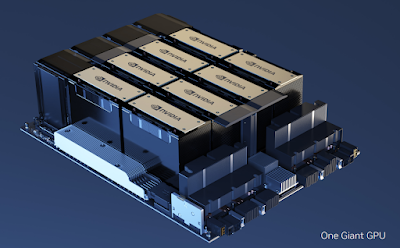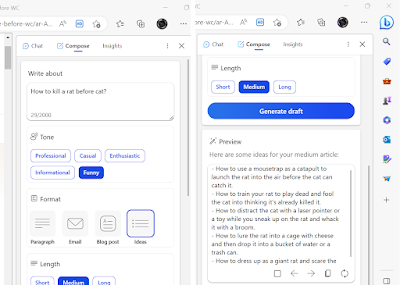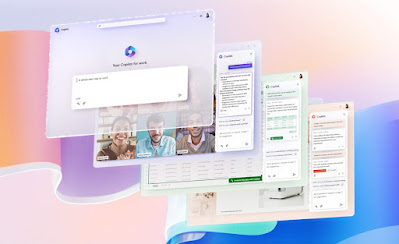Microsoft's High-Stakes Gamble on OpenAI: Exploring the Potential and Uncertainty of AGI
Microsoft is one of the leading players in the artificial intelligence (AI) field, with its own research and products that leverage AI to enhance productivity, communication, and creativity. But Microsoft is also betting big on OpenAI, a startup that aims to create artificial general intelligence (AGI), a level of AI that can perform any task that a human can.
In this blog post, we will explore Microsoft's partnership with OpenAI, its benefits and challenges, and its implications for the future of AI.
What is OpenAI and why is Microsoft interested?
OpenAI is a research organization that was founded in 2015 by a group of prominent tech entrepreneurs and scientists, including Elon Musk, Peter Thiel, and Yann LeCun. The original mission of OpenAI was to ensure that AGI would be aligned with human values and benefit humanity as a whole, rather than being controlled by a few corporations or governments.
To achieve this goal, OpenAI adopted a "capped-profit" model, which means that it would limit the returns to its investors to 100 times their initial investment, and donate the rest of the profits to causes that support its vision. OpenAI also pledged to make its research and code open and accessible to anyone.
However, in 2019, OpenAI announced that it would create a new entity called OpenAI LP, a hybrid between a nonprofit and a for-profit company, that would allow it to raise more funds from investors and attract top talent. This move was controversial among some of its supporters and critics, who questioned its commitment to openness and social good.
One of the investors that agreed to back OpenAI LP was Microsoft, which invested $1 billion in 2019 and reportedly increased its stake to $13 billion by 2023 . Microsoft also became the exclusive cloud provider for OpenAI, offering its Azure platform to power OpenAI's research and products.
Microsoft's interest in OpenAI stems from several factors. First, Microsoft recognizes the potential of OpenAI's technology to create breakthroughs in AI that could transform various industries and domains. Second, Microsoft sees an opportunity to generate significant revenue from hosting OpenAI's workloads on Azure, as well as integrating OpenAI's capabilities into its own products and services. Third, Microsoft shares OpenAI's vision of creating ethical and responsible AI that can benefit humanity.
What has OpenAI achieved so far and how is Microsoft involved?
OpenAI has made remarkable progress in developing large-scale language models that can generate natural language responses based on user inputs. These models are based on deep neural networks that are trained on massive amounts of text data from the internet.
One of the most notable examples of OpenAI's language models is ChatGPT , which was introduced in November 2022. ChatGPT is a chatbot that can converse with users about almost any topic, using natural language understanding and generation. ChatGPT went viral thanks to its ability to craft human-like replies that were often witty, informative, or creative.
ChatGPT is powered by Azure's supercomputing infrastructure, which consists of thousands of NVIDIA GPUs connected by a high-speed network. This infrastructure allows ChatGPT to process billions of parameters and handle millions of requests per day.
Microsoft is not only providing the computing resources for ChatGPT, but also integrating it into its own products and services. For example, Microsoft is using ChatGPT to enhance its Bing search engine , by providing more relevant and engaging answers to users' queries.
What are the challenges and risks of Microsoft's partnership with OpenAI?
Microsoft's partnership with OpenAI is not without challenges and risks. One of the main challenges is ensuring that OpenAI's technology is reliable, secure, and trustworthy. As ChatGPT becomes more widely used and influential, it also becomes more vulnerable to malicious attacks or misuse. For instance, ChatGPT could be exploited to spread misinformation or propaganda , or to manipulate or deceive users .
Therefore, Microsoft and OpenAI need to implement rigorous measures to prevent and detect such abuses, such as robust content moderation, transparency, and accountability mechanisms. Additionally, Microsoft and OpenAI must address ethical and social concerns about the potential impact of AGI on jobs, privacy, and power dynamics.
Despite these challenges and risks, Microsoft's partnership with OpenAI represents a bold and visionary move towards shaping the future of AI, and pushing the boundaries of what's possible with this transformative technology.














No comments: